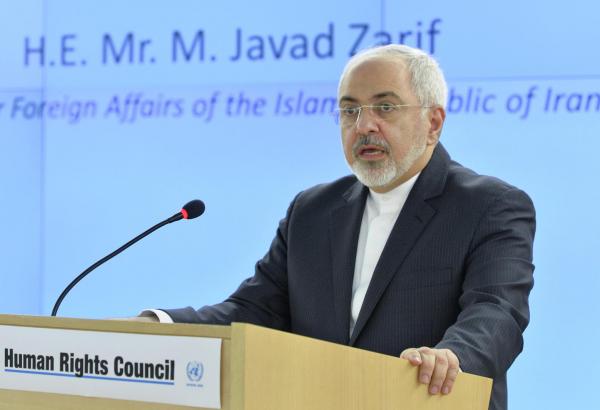Source: www.embassynews.ca
President Rouhani has failed to deliver on promises to protect civil rights and respect religious minorities’ rights.

The heralded Iranian nuclear deal has prompted a number of Western countries to begin expanding their economic and political relationships with Iran. Trade negotiations have started and Iran was welcomed to participate in the Syria peace talks. In November, Iranian President Hassan Rouhani was welcomed in visits to several European countries.
While the nuclear deal was celebrated as a means to promoting international peace, it is too early to regard it as a turning point for Iran. So far, President Rouhani has done nothing to alter the course of Iran’s unrelenting violations of the rights of journalists, religious and ethnic minorities, human rights defenders, and women’s rights activists, among others. Whatever excuses observers might offer regarding the strength of forces that resist reform, the Iranian government cannot be rewarded when the suffering of so many of his citizens continues and in many cases worsens.
UN Secretary-General Ban Ki-moon reported on the continued assault on human rights before the opening of this year’s United Nations General Assembly in September. The Secretary-General reported on more than 500 executions in the first half of 2015, a number that could go over 1,000 by the end of the year, according to Amnesty International. The most executions per capita of any country in the world, many of those executed are minors. Ban Ki-moon also decried continuing attacks on freedom of expression and labour rights, along with a systematic lack of due process in the courts and the application of the rule of law in the country.
For the relatively large Baha’i community—Iran’s largest non-Muslim religious minority—the rights violations have intensified. Close to 10,000 Canadian-Iranians among Canada’s 35,000 Baha’is are acutely aware of that through relatives and friends in Iran.
Almost every week a new outrage. In an effort to block Baha’i youth from higher education, Iranian authorities imprisoned the mother and are threatening to imprison the father of a six-year-old boy, depriving him of care, simply because the couple, Azita Rafizadeh and Payman Koushk-Baghi, have tried to support an informal effort to provide young Iranian Baha’is with some university education, otherwise denied entrance to universities because of their religion.
Iranian Intelligence Ministry agents have also arrested 20 young Baha’is in the cities of Tehran, Isfahan and Mashad, and closed down 28 Baha’i-run businesses in the province of Mazandaran. Though several of those arrested have since been released, the others join more than 70 Baha’is incarcerated simply because of their religious beliefs. Seven key Baha’i leaders, arrested in 2008, still face the longest prison terms of any of Iran’s many prisoners of conscience.
Denial of higher education to Baha’is, closure of Baha’i-owned businesses, and destruction of Baha’i cemeteries, are among some of the violations that present a pattern of systematic persecution of Baha’is. More dramatic indications of the government’s policy towards the Baha’i community has been the vast multiplication over the past couple of years of government-sponsored radio and television programs that mix lies and denunciations in broadcasts that are nothing more than hate propaganda that aim to incite the population against the Baha’is, thus allowing the government to blame the people for attacks on the Baha’is rather than accepting responsibility. The truth, however, is increasingly difficult to cover up as more and more Iranian citizens, including a few leading clerics and prominent artists and lawyers, have begun to defend the rights of Baha’is, risking thereby their own security.
President Rouhani has failed to deliver on promises to protect civil rights and respect religious minorities’ rights. Travelling to New York to speak at the UN in September and visiting Europe in November, Rouhani says nothing about the Baha’is, admits nothing about the level of tyranny of his government towards them and the many other victims of human rights abuse, and still expects to be received as a legitimate international figure.
One good sign that international attention is not completely flagging was the United Nations General Assembly vote at the end of November, adopting a resolution that condemns Iran’s human rights record. The resolution was led by Canada, as it has been through both Liberal and Conservative governments since 2002. The vote count this year, 76 countries for the resolution, 35 against, with 65 abstentions. It indicates that some still don’t understand that, however much Iran wants warmer relations with others, the regime’s appalling record on human rights must not go unnoticed.
Gerald Filson is director of public affairs for the Baha’i Community of Canada. He can be reached at[email protected].
[email protected]
December 19, 2015 9:22 am
These atrocities must be dealt with at every level. This has been allowed to go on for far too long. Put an end to it all right now and ensure the human rights of all Baha’is without exception.